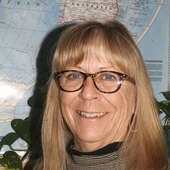- Research tips and McCook Brick Company- solid as a brick (12/16/24)
- Big Give appreciation and some railroad characters (11/15/24)
- George Randel becomes a landowner, gets married, and takes in a Buffalo Bill show (9/20/24)
- The memoirs of George F. Randel, early settler of Red Willow County (9/12/24)
- Vietnam War Memorial honors Nebraskans who served (6/13/24)
- McCook business promotions - just prior to 1893 stock market crash (5/30/24)
- Shall we dance? Meet you at the Gayway (12/8/23)
Trove of information from 1890 census
Friday, January 15, 2021
130 years ago, the United States was preparing to take the eleventh census of the population. In the McCook Tribune, May 30, 1890 there was an explanation of what would be covered in the census questions. Genealogically speaking, the expanded questions were quite handy for those doing research.
ďThe Eleventh Census of the United States will be taken during the month of June. The census enumerators will begin their work on Monday, June 2, and will visit every house and ask questions concerning every person and every family in the United States. The questions that will be asked call for the name of every person residing in the United States on the first day of June, with their sex, age, and whether white, black, mulatto, or Chinese, Japanese, or Indian. Inquiry will be made also of every person as to whether they are single, married, widowed or divorced, and, if married, whether married during the census year. The place of birth of each person, and the place of birth of the father and mother of each person, will also be called for, as well as a statement as to the profession, trade, or occupation followed and the number of months unemployed during the census year. For all persons ten years of age or over a return must be made by the enumerator as to the number able to read and write, and also the number who can speak English. For those who cannot speak English the particular language or dialect spoken by them will be ascertained. For children of school age, also, the number of months they attended school will be recorded by the census enumerators. In the case of mothers an enquiry will be made as to the number of children they have had, and the number of children living at the present time. This inquiry is to be made of all women who are or have been married, including all who are widows or have been divorced. Foreign-born males of adult age, that is, 21 years of age or over, will be asked as to the number of years they have been in the United States, and whether they are naturalized or have taken out naturalization papers. Of the head of the family visited the question will be asked as to the number of persons in the family, and whether his home is owned or hired: also, if owned, whether it is free from mortgage encumbrance. If the head of the family is a farmer similar inquiries will be made concerning the ownership of the farm. In addition to these inquiries, all of which are made on the population schedule, the law under which the census is taken makes provisions for especial inquiries concerning such of the population as may be mentally or physically defective in any respect, that is, insane, feeble-minded, deaf, blind, or crippled, or who may be temporarily disabled by sickness, disease or accident at the time of the enumeratorís visit. Certain special inquires will also be made concerning inmates of prisons, reformatories and of charitable benevolent institutions. Besides this, a statement will be called for concerning all persons who have died during the census year, giving their name, age, sex, occupation, and cause of death.Ē
Whew! If you had an ancestor living in 1890 this census should just about tell you everything you need to know! Two of the most important questions for those of us that are sticklers for details will be how many children a woman had borne compared to how many children are living plus the question concerning application for naturalization (citizenship). In 1890, a fatherís application covered the entire family, wife and children, so you wonít find an application for your great-grandfather if he was a minor child but rather an application under his fatherís name.
SWNGS library, located at 322 Norris Avenue in the Temple building, rooms 2-7 on the second floor, will now be opened on Tuesday afternoon from 1-4 PM. There is an elevator available for your use.

